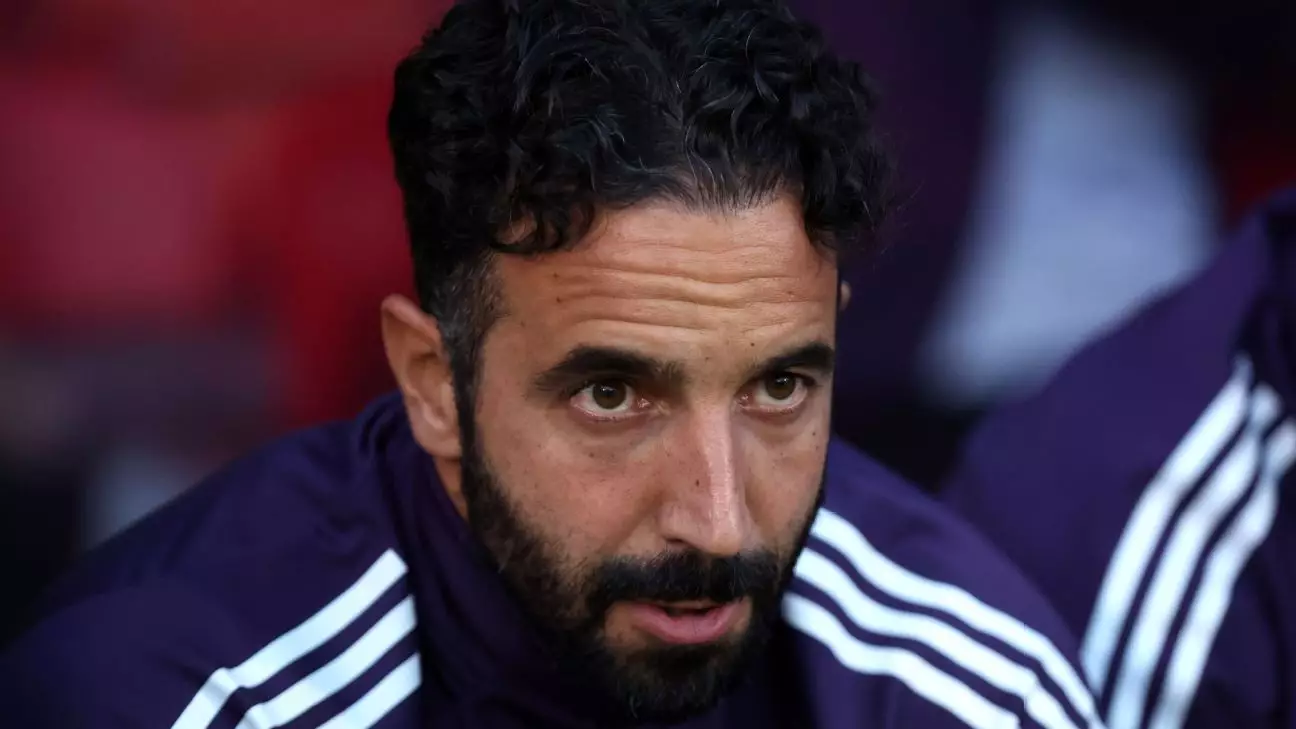In the wake of Manchester United’s recent tumultuous performances, the football community is questioning whether this is a moment of genuine crisis or an overreaction to temporary setbacks. The shocking defeat to Grimsby Town in the Carabao Cup was more than just a missed opportunity; it was a blunt reminder of the depth of United’s struggles and the fragile state of their squad. Such a result is rarely seen at a club with United’s storied history, and many interpret it as a sign that the team’s rebuild is not progressing as planned. Yet, amidst the chaos, the club exhibits stubborn resilience, refusing to succumb to outright panic.
The defeat has reignited debate about the coaching staff, especially Ruben Amorim’s position. Despite signing a contract until 2027, his future appears increasingly uncertain. The impression that the club hierarchy is not ready to make an immediate change suggests a fear of instability. However, this stance can be challenged: is patience a virtue in this scenario, or is it a dangerous delay in addressing glaring issues?
United’s low standing—just one point from their first two Premier League matches—exacerbates the sense of urgency. A club with aspirations of competing at the top should not be settling for mediocrity so early in the season. Amorim, who previously gained recognition with Sporting CP, has not yet demonstrated consistent success at Old Trafford. His tenure so far has been marked by inconsistency and a failure to translate promising periods into sustained results.
Leadership Doubts and the Lingering Shadow of Past Failures
The recent slump raises critical questions about leadership and strategic vision at United. Multiple factors contribute to the ongoing crisis: tactical missteps, squad imbalance, and perhaps a lack of clarity about the club’s long-term direction. There is an undeniable sense that United is caught in a cycle of reactive management rather than proactive planning. The club’s historical tendency to chase quick fixes has often backfired, and current signs suggest this pattern might be repeating itself.
Furthermore, the current squad appears disjointed and lacking confidence, a reflection of the turmoil behind the scenes. The departure of Erik ten Hag’s squad, with notable players like Jadon Sancho and Antony under scrutiny, underscores how fragile team chemistry has become. Managerial stability is crucial, but it can only serve as a foundation if complemented by a coherent strategy and a strong, unified leadership structure that signals stability rather than chaos.
The ambiguous stance of the club’s top brass, including prominent figures like Sir Jim Ratcliffe, fuels uncertainty. Their readiness to hold on despite poor results can be perceived either as strategic patience or indecisiveness. Nonetheless, history suggests that delayed action may diminish future chances for turnaround, especially if morale continues to dip and results worsen.
A Critical Juncture: Will United Evolve or Continue to Stagnate?
The upcoming fixture against Burnley now feels like a litmus test — a chance to either stabilize or deepen the crisis. Ruben Amorim, despite his emotional pleas for change, remains in charge, at least temporarily. His comments hint at a leader who recognizes the depth of the issue but perhaps lacks the authority or support to enact significant change swiftly.
In this context, the transfer window becomes more than just a roster shuffle—it transforms into a symbolic battleground for United’s future identity. The club’s attempts to offload marginalized players like Jadon Sancho and Antony, as well as find opportunities for others like Alejandro Garnacho and Tyrell Malacia, reflect a broader attempt to recalibrate the squad’s mental and tactical makeup. Success in these negotiations could mark a turning point, signaling the club’s willingness to make bold moves or admit that current strategies are insufficient.
Ultimately, Manchester United stands at a crossroads. The forthcoming results will not just determine their position in the league but also define the trajectory of their long-term rebuild. Will the club’s leadership show the decisiveness required to break free from recent failures? Or will ongoing indecision continue to erode morale and patience? The answer lies in their next steps — and whether they are brave enough to confront the uncomfortable truths that have surfaced in this rocky chapter.

